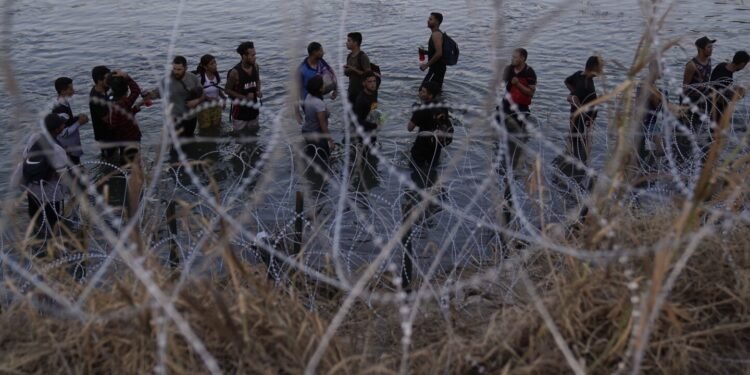McALLEN, Texas (news agencies) — A Supreme Court decision that lets Texas arrest and deport migrants – at least for now – on charges of illegally entering the country could have a dramatic impact on the U.S.-Mexico border but its immediate effect was muted.
Sheriffs and police chiefs who will put the law into effect were largely circumspect about when, where and how migrants may be arrested. Before a divided court on Tuesday let the state law take effect while a legal challenge plays out, some sheriffs were ready to relish an unprecedented state expansion into border enforcement, while others were reluctant.
Texas was silent in the hours after the ruling on whether and when state troopers or Texas National Guard soldiers — who have the most interaction with migrants —- would begin enforcement.
Mexico’s Foreign Affairs Secretary said in a sharply worded statement that it would refuse to take anyone back who is ordered to leave the country under the state law and that it “categorically rejects” any state or local government enforcement of immigration laws.
“Mexico reiterates the legitimate right to protect the rights of its nationals in the United States and to determine its own policies regarding entry into its territory,” the government said.
Kinney County Sheriff Brad Coe, who has largely embraced Texas Gov. Greg Abbott’s multibillion-dollar border enforcement effort, said he was “prepared to proceed with prosecutions” but officers would need “probable cause” to make arrests. His county covers a stretch of border near Del Rio that was recently the busiest corridor for illegal crossings but quieted considerably.
“It is unlikely that observers will see an overnight change,” Coe said.
El Paso County Judge Ricardo Samaniego, the top county executive, said immigration enforcement should remain a federal, not state, responsibility, echoing the Biden administration’s view. He said heightened law enforcement presence in the city of El Paso during a previous migrant surge brought high-speed chases and traffic stops based on assumptions that passengers were in the counry illegally.



 Pakistan Rupee Exchange Rate
Pakistan Rupee Exchange Rate





